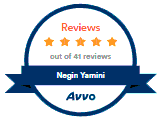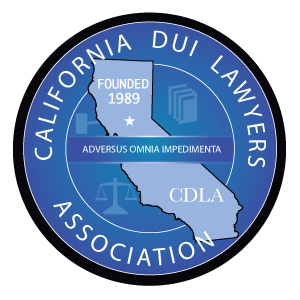A record of arrest or conviction can have a negative impact on your professional and personal life. Since criminal records are public records, you may have to live with the embarrassment and social stigma that comes with having such a record holding on to your name. Even if you were never convicted for the crime you were arrested for or charged with, the record will not go away. Finding a place to live or a job can become a difficult process. Anyone can access another person’s criminal history. Prospective apartment owners, school administrations, employers, insurance companies, state licensing agencies, and even potential dating partners can run a background check and see someone’s record. And when they find a record on your name, they may not care whether an arrest was justified or whether you’re clean now after your conviction or diversion program.
In California, there are several ways in which an arrest or criminal record can be cleared or effects of a past conviction partly or completely set aside. Most individuals who have a past record will be eligible for at least one or more of these probable ways of clearing up that record. As such, they will need not continue to be an embarrassment or hindrance as you move through the rest of your life.
At Record Expungement Attorney, we have an abundance of experience and in-depth legal knowledge that can help you to finally “put the past aside.” Our lawyers can quickly determine if you’re eligible for some kind of record clearing and if so, which type of record clearing will work best for you. We can help you through any and all pertinent record clearing processes that will give you a fresh start legally. Contact us today any time 24/7/365 at 424-835-9505 and we’ll get you started with a free, no-obligation consultation. Whatever your situation, we’ll give immediate attention to your case.
BENEFITS OF RECORD CLEARING IN CALIFORNIA
Clearing an arrest record, expunging a criminal record, and a variety of other similar legal actions are provided for under California law. Each type of record clearing has its own unique process, benefits, and drawbacks, and is used in different types of situations. Our attorneys understand all these details and analyze them for our clients on regular basis. With unsurpassed performance and accompanying benefits for clients in the previous record clearing cases we’ve handled, we stand ready to do the same for you. Generally, record clearing services can help you secure a gainful employment by erasing or hiding a past arrest or criminal conviction, removing a felon status. You also become eligible for student loans, making it easy and possible for you to access college admission if you had been blocked, get approved for apartment leases, and even obtain state-issued professional licenses.
FORMS OF RECORD CLEARING UNDER CALIFORNIA LAW
Let’s look at some of the most common types of recording clearing available under California law.
EXPUNGEMENT OF A CRIMINAL CONVICTION
Under California Penal Code Section 1203.4, an is a form of relief that releases a person from all penalties and disabilities related to criminal convictions. If you qualify and go through the necessary steps, it’s possible to expunge both misdemeanors and felonies in California. From petty crimes, traffic violations to drug crimes, it’s crucial to get a conviction removed. However, there are several records that cannot be expunged such as murder, sex offenses, and out of state convictions. An expungement will not end your duty as a sex offender, restore your right to own a gun, overturn a suspended or revoked driver’s license, or overturn immigration consequences.
Typically, expungement works by reopening a criminal case and then dismissing it and clearing your record as though you were never convicted. Your criminal record will be updated to reflect the newly acquired status. An expungement does not fully eliminate a past criminal record but it does remove the convicted status. It allows you to legally state that you were never convicted of the said offense both on job applications as well as other legal contexts.
To be eligible for expungement, you must not have served a state prison sentence. This means that you may qualify if you were sentenced to county jail, a fine, probation, diversion program, or a combination of these sentences. You need to have successfully completed all probationary terms, be free from any new criminal charges, and have paid all fines and victim compensation. Also, if your probation was terminated before the period ended, you’re eligible to petition for an expungement as provided under PC 1203.3. In the case of a misdemeanor or infraction conviction, you can petition for an expungement a year later from the time the court first delivered its judgment. Two years after your sentence apply if you granted Prop 47.
The judge has the discretion to decide whether to grant an expungement order. Once the expungement order is issued it means that, with some exemptions, the criminal proceedings did not take place. Even under less than ideal circumstances, you may still have your felony (or misdemeanor) record cleared and this is why you need an experienced Record Expungement Attorney working on your behalf. An expungement can take between 90 to 120 days; however, certain courts or older cases may take a maximum of six months.
SEALING ARREST RECORDS
A new California law, SB 393 or Penal Code 851.7, allows individuals who were arrest but the arrest did not result in a conviction to have their arrest records sealed as a matter of right, which means automatically. Successful sealing of an arrest implies that the record will never appear or show up on most criminal background checks in California except to law enforcement agencies. The arrest is essentially considered not to have occurred. To determine eligibility, the arrestee must not have been convicted of the crime and any of the following must apply:
- No criminal charges were ever filed after the arrest
- Charges were filed, but the respondent was found not guilty at trial
- Charges were filed but the case was dismissed and can’t be refiled
- Charges were terminated after the respondent successfully completed a pre-sentencing program or pretrial diversion
- The defendant was convicted, but then the conviction was vacated or reserved on appeal at a later time
Sealing a record successfully destroys one’s arrest records but it doesn’t completely cease to exist. The sealed record can be appealed and demonstrated if the applicant is consequently indicted for another offense. While expungement is a more difficult process, record sealing can be more demanding because you must prove factual innocence. There’s also a lot of paperwork with the same law agency that made the arrest. You can as well petition for an affidavit from that agency indicating that you were detained but not arrested in order to accomplish the same thing. This distinction makes a huge difference, especially when applying for many state-issued professional licenses. A petition to seal your arrest must be done in the court where the charges were filed or the city or county in which the arrest was made of the charges were never filed. A hearing is then scheduled to determine whether your motion to seal and destroy your arrest record should be granted or denied. You cannot seal your arrest records as a matter of right if your record shows a pattern of either child abuse, domestic violence, or elder abuse. However, if this is your condition, you can still get your arrest record sealed if doing so would be in the interests of justice.
There are several things that record sealing does not relieve an applicant from, this includes:
- Duty to register as register as a sex offender
- Prohibition against buying, owning, possessing, or selling a firearm or susceptibility to a conviction for violating California's felon with a firearm law
- Duty to disclose the arrest to a more direct question on application for either, public office, licensing by any state or local agency, employment as a peace officer
- Legal prohibition against holding public office that may have resulted in the arrest
CERTIFICATES OF REHABILITATION & PARDONS
Under California law, there are some criminal convictions that simply cannot be expunged. These are usually high-level felony crimes and even some forms of misdemeanors. In such circumstances, you can still take positive legal action. You may be eligible for a Certificate of Rehabilitation from the court, which most employers and others who run a background check are likely to take note of. A certificate of rehabilitation is a document given by the court declaring that an individual convicted of a felony or certain misdemeanor sex offenses is now rehabilitated. If a petition for a certificate of rehabilitation is granted, the court will then forward it to the Governor and automatically becomes an application for a Governor’s Pardon.
Although the certificate of rehabilitation doesn’t directly act in clearing your record, it comes in handy when you want to obtain a job or secure a professional license since it indicates that you’re ready to become a productive member of security. In general, any individual residing in California and has been convicted of a felony or a certain misdemeanor sex offense may apply for a Certificate of Rehabilitation in a superior court in his/her county of residence as long as they satisfy the requirements of demonstrated rehabilitation as provided under Penal Code Section 4852.06. Eligibility normally includes completion of jail/prison sentence and parole/probation period. And you must not have had further criminal charges against you or convictions. Also, you must have continued to be a California resident for a given number of years, which the time-limit varies depending on the crime.
For those convicted of sex offenses, there are special laws that apply to that. Individuals convicted of misdemeanor sex offenses as defined under PC 290, may be able to apply only if their conviction has been terminated under Penal Code 1203.4. Those convicted of felony offenses under Penal Code section 286(c), 288, 288.5 or 289 qualify to obtain a Certificate of Rehabilitation. This certificate may relieve some convicts from the duty of registering as a sex offender.
A California Governor’s pardon, on the other hand, is a usually granted to persons who have proved exemplary behavior after a felony conviction or a misdemeanor sex offense. Earning a Governor’s Pardon is a distinct accomplishment based on the proof of a productive, useful, and law-abiding life after being convicted. Depending on the Governor’s discretion, he/she can decide whether to grant a pardon. A pardon is a privilege not a right and not everyone who applies for it will be granted. An application will not be approved lest the applicant has been discharged from probation or parole for at least 10 years without being involved in other criminal activities during this period. To qualify for a California Governor’s Pardon, you must have been convicted in California of either a felony or misdemeanor sex offenses.
SEALING YOUR JUVENILE RECORD
The process of clearing a juvenile record is different from sealing an adult criminal or arrest record. To be eligible to seal your juvenile you must have been off of juvenile probation for at least 5 years or 18 years or older, whichever comes first. In addition, you must not have been convicted of a misdemeanor or felony offense involving moral turpitude, such as fraud, theft, certain drug-related offenses, certain sex offenses to be eligible. If the court has reasons to believe that you’re rehabilitated, your petition will be granted, ultimately cleaning your criminal record, which means that you’ll not be obligated to disclose the conviction to future employers or lending agencies. Also, if you were to register as a sex offender under PC 290, sealing your juvenile record will offer relief from this duty.
RESTORATION OF FIREARM RIGHTS
All convicted felons in California lose their rights to own, possess, buy, or sell firearms. And it’s not possible to get back your gun rights once you lose them after being involved in a California felony involving a dangerous weapon. A dangerous weapon under California law is defined as any weapon, object or instrument capable of being utilized to cause severe bodily injury. It’s true that an expungement alone cannot reverse the loss of gun rights, but in cases where the offense was a “wobbler” which means that the cases could have been charged either as a misdemeanor or felony, you can file petition for a reduction from felony to a misdemeanor under California Penal Code Section 17(b). The second option is by obtaining a California Governor’s Pardon.
Once the reduction is successful, you can then file another petition to have your criminal record expunged. It’s easy to expunge a misdemeanor compared to a felony, and this means the expungement process will be successful if your sentence-reduction is granted. Nevertheless, there are some misdemeanors that also revoke one’s gun rights. If this is the case, it may take ten years from the date of your conviction before you can have your firearms rights back.
It’s worth noting that Federal law prevents California law from reinstating gun rights under certain conditions, including, but not limited to:
- You’ve been confined to an institution, adjudicated to be mentally defective, or you’re an abuser or illegal user of controlled substances
- You’ve been convicted of a crime of domestic violence
CONTACT US TODAY
We at Record Expungement Attorney have spent many years building a reputation for legal excellence and integrity in communities across Long Beach, Los Angeles, and Valley Area. With combined decades of experience, you can rest assured that we’ve got you covered. We have a strong track record of successfully assisting our esteemed clients in getting all their arrest records cleared, criminal records expunged, obtaining a certificate of rehabilitation, Governor’s pardon, and other related matters. Our attorneys predominantly deal with record clearing cases and understand how to handle them and get you started to a life where your past isn't directly in the picture.
We give each client a customized, personal attention from the time they call our offices. Unlike other law mills offering these services, we dedicate our efforts to a case from start to finish. And what’s even better, you can get in touch with 24/7/365. So, if you have an arrest or conviction on your record, let us help you clear your name and redeem your personal and professional life. Contact us any time at 424-835-9505 for a free, no-obligation consultation.









